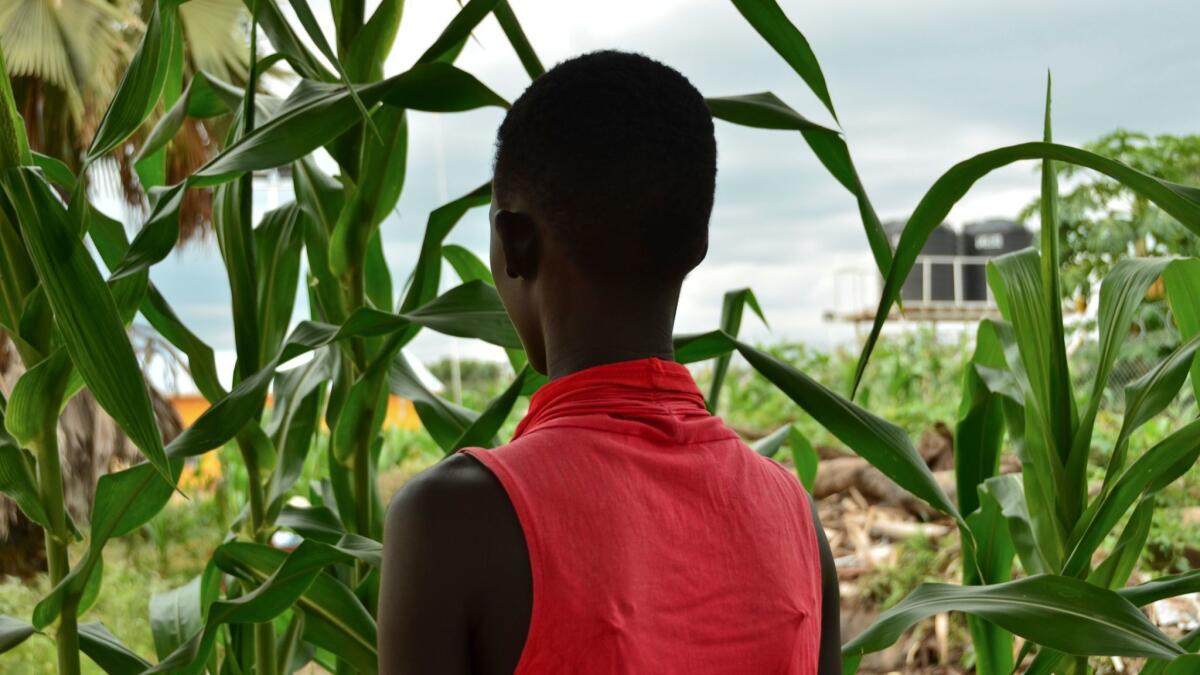Editorial: Is it safe for citizens to go home to Sudan or Haiti?

- Share via
The United States has long allowed people to remain in this country if their home nations are beset by war or natural disaster while they’re here. It is one of the great humanitarian features of an often-dysfunctional and too frequently coldhearted immigration system.
But signals now being sent from the Trump administration suggest that people living here with “temporary protected status” may be in the crosshairs of the anti-immigrant wing of the White House.
How do people qualify for “temporary protected status”? Under a 1990 law, the U.S. may designate a foreign country for TPS if conditions there temporarily prevent its citizens from returning home safely or if it is deemed unable to handle the return of its citizens. Conditions that might trigger TPS include earthquakes, hurricanes and civil wars; once designated, that country’s citizens who are in the United States may apply to stay and work here.
Obviously, there can be disagreement about which countries should be on the list and, because the protection is temporary, when they should come off it. Clearly, if countries remain on the list for so long that the temporary protections become, in practice, near-permanent, then something is not working. But that hasn’t been the case.
There are about 400,000 people from 10 countries receiving protected status — not a terribly burdensome number for the United States.
There are about 400,000 people from 10 countries receiving protected status — not a terribly burdensome number for the United States, which has more than 300 million people. Those countries include Haiti, Sudan, Yemen, El Salvador and Honduras. And plenty of countries have come off the list over the years, including Bosnia and Herzegovina, Guinea-Bissau, Kosovo, Kuwait, Lebanon, Rwanda and Sierra Leone.
The question now is whether conditions in Haiti and Sudan have improved enough that they should be taken off the list. The Trump administration says they have, but many immigration advocates disagree.
If the administration doesn’t change its mind, the protected status of 59,000 Haitians, granted in 2010 after a deadly magnitude 7.0 earthquake, will end in January. This despite a report issued in December by U.S. Citizenship and Immigration Services (part of the Department of Homeland Security) that undercuts the government’s conclusion that Haiti has stabilized, and despite a decision four years ago by the neighboring Dominican Republic to deport thousands of Haitians that has further strained Haiti’s resources.
Sudan has been on the list for 20 years, since President Clinton decided to grant protection to Sudanese citizens in the U.S. because civil war conditions were too dangerous for them to safely return home. International human rights watchers say Sudan remains dangerously unsettled; the State Department warns Americans not to travel there in part because uncontrolled militias roam portions of the country. Yet President Trump this week announced that the protected immigration status for about 1,000 Sudanese in the U.S. will end next year.
Some human rights advocates fear the ending of temporary protections for Haitians and Sudanese is just the beginning of a severely straitened approach to granting protected status. After all, the Trump administration came to power on a wave of anti-immigrant rhetoric. It did recently extend existing protections to people from South Sudan, but with that nation still engaged in a brutal civil war, it would have been ludicrous to try to argue that conditions had improved sufficiently to send its people home.
Unless the government extends it, temporary protective status will expire next year for citizens of El Salvador (263,000 have received protection since 2001) and Honduras (86,000 since 1998). Are those countries sufficiently safe that their citizens can return home? That’s a legitimate question that must be answered before the protections expire. But given the Trump administration’s embrace of alternative facts and its animus toward immigrants, we worry that it won’t review these designations with clear and compassionate eyes.
While it’s still early in his first term, it seems increasingly likely that history will place Trump in the same drawer as the 19th century Know-Nothings and other historical anti-immigrant movements in America. If the U.S. wants to be seen around the world as a moral leader and a beacon of freedom, its citizens will have to keep a close and skeptical eye on this administration’s decisions regarding temporary protective status.
Follow the Opinion section on Twitter @latimesopinion or Facebook
More to Read
A cure for the common opinion
Get thought-provoking perspectives with our weekly newsletter.
You may occasionally receive promotional content from the Los Angeles Times.









